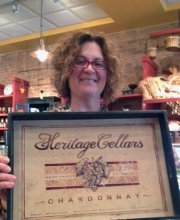Maria Polinsky
ProfessorResearch Interests: Language universals and their explanation, comparative syntactic theory, the expression of information structure in natural language, incomplete acquisition (heritage languages), Austronesian languages (esp. Malagasy, Maori), languages of the Caucasus (esp. Tsez, Kabardian).
My work is at the intersection of theoretical syntax and study of cross-linguistic variation in sentence structure. I am interested in the ways linguistic theory can be used as a roadmap for understanding how people process language and for obtaining meaningful results that feed back into theory. Language-wise, I specialize in Austronesian and languages of the Caucasus. I also have a particular interest in heritage languages which are strikingly similar to each other, regardless of the input (baseline) language. It is important to understand why they share so many grammatical similarities with each other. In terms of linguistic phenomena, I am particularly interested in long-distance dependencies, case assignment, and control/raising.
